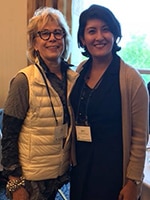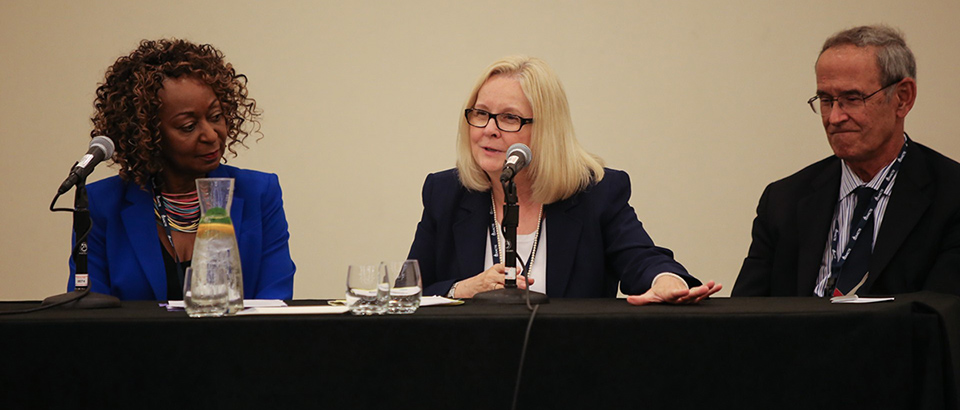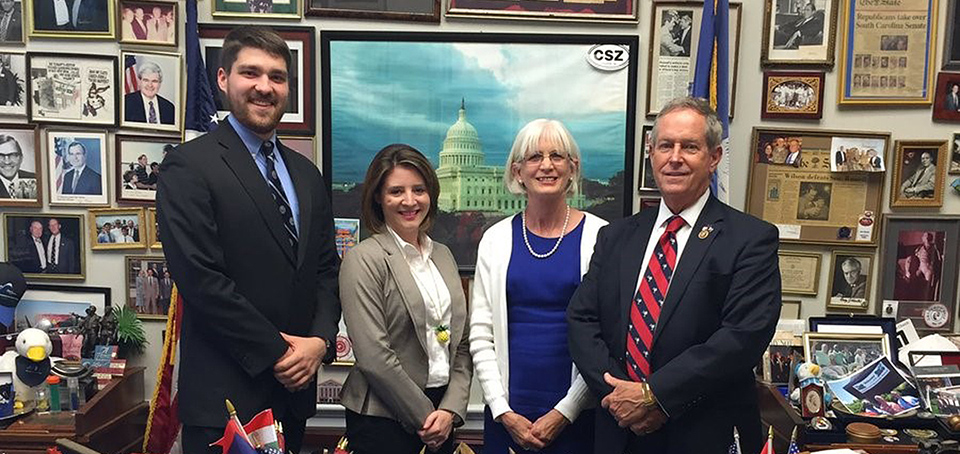05 Jul2018
By Joseph Lubig and Carol Ryan
This event is cancelled until further notice.

The authors will be leading the “Track A” (introductory) strand of quality assurance sessions during the 2018 AACTE Quality Support Workshop in Columbus, Ohio. For details and to register, visit aacte.org, and download the full agenda here.
The quality of educator preparation programs matters, as they develop the professionals who will have the most influence on our children–and continuously shaping programs to excel in this charge is important work. This work requires calculated risk taking, established processes for critiquing the work, and a culture that fosters honest feedback focused on improvement.
05 Jul2018
By Melissa Cuba
AACTE Consultant Jane E. West and the author at the Holmes Summer Policy Institute in Washington, DC
I often ask myself, “How can I use my work as an emerging researcher and scholar to help inform educational policy and practice?” Sadly, the implications section of the manuscripts I have produced and even read often feels distant and unattainable, especially without an audience that is empowered to take action. Thankfully, this month’s AACTE Holmes Summer Policy Institute helped me see how I could navigate a new space and translate my work to impact change.
During the sessions, I realized the importance of building relationships, knowing the agenda, and sharing my work in multiple mediums. I learned the importance of branding and using social media to promote the work I am doing and also to inform my community in ways that are accessible. While that may feel foreign to some, including me, I know I can post a section of a paper I am working on or some key data that might get some people to think twice about an education-related topic.
20 Jun2018
By Lori Kroeger
This event is cancelled until further notice.
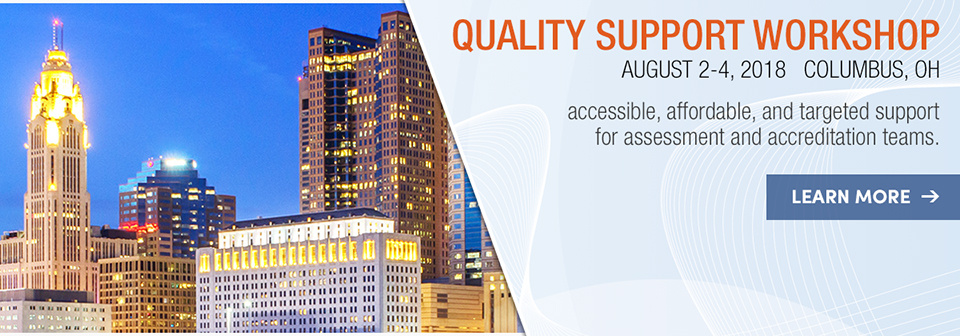
When I decided to attend the AACTE Quality Support Workshop last summer, I was a faculty member and assessment coordinator in a college of education. Armed with an already solid understanding of the principles and practices of assessment, I was not sure how much I would get out of attending the workshop, but as the sole representative from my institution, I registered anyway and made the trip to Minnesota. Over the next 3 days, my expectations were shattered, in a very good way!
The workshop was well organized and provided the opportunity to learn from engaging plenary session speakers and included multiple sessions covering a variety of topics related to assessment and accreditation. There was time and planned activities that allowed for ample opportunity to engage in dialogue and collaborate with others who share similar responsibilities at their institutions. It was through these opportunities that I found like-minded people who were tackling the same kind of work for educator preparation providers (EPPs) around the country.
19 Jun2018
By Shelley B. Wepner and William Henk
What factors contribute most to the longevity of education deans in their positions? Are there optimal lengths of time for these academic administrators to stay in their roles, and if so, how long and why? What are the personal and professional benefits or downsides of remaining in the role of education dean for an extended period?
These questions are among those emerging from a national survey on deans’ ways of thinking, being, and acting that revealed generally limited lengths of service in the deanship. The survey results have inspired a new line of research on factors contributing to deans’ longevity in the role, which may be important for critical initiatives to have a viable lifespan and for deans and their stakeholders to continue to be gratified.
18 Jun2018
By Ramon B. Goings
This column originally appeared in Diverse: Issues in Higher Education and is reposted with permission. The author was a panelist during AACTE’s Holmes Summer Policy Institute on June 4. The views expressed in this post do not necessarily reflect the views of AACTE.

Last week I had the opportunity to talk to current and aspiring doctoral students who were attending the American Association of Colleges for Teacher Education (AACTE) Holmes Summer Policy Institute. Throughout the session titled “Linking Research to Policy: White Papers, Blogs, and Social Media,” I joined several panelists to dialogue about the importance of leveraging social media as an outlet to get your research exposure outside of the ivory tower and into the hands and screens of practitioners and policy makers.
15 Jun2018
By Renée A. Middleton
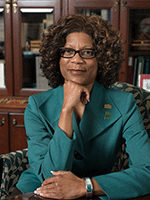
This op-ed originally appeared in the Cincinnati Enquirer and on Cincinnati.com. The views expressed in this post do not necessarily reflect the views of AACTE.
Brown v. Board of Education, one of the most iconic cases in U.S. history, recently celebrated its 64th anniversary, serving as a reminder of battles waged and battles won. It also served, sadly, as a reminder of progress made and progress yet to be achieved.
11 Jun2018
By Donna Wake and Terri Cullen
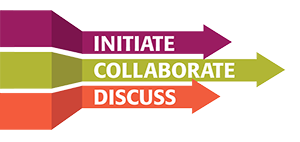
The authors are members and leaders of the AACTE topical action group called “All Things Accreditation.” The views expressed in this post do not necessarily reflect the views of AACTE.
Members of the All Things Accreditation Topical Action Group (TAG) spent the spring term this year designing and validating a survey that aims to help us better understand how the field is measuring technology integration in teacher education programs and what evidence colleges are using for technology expectations such as those of the Council for the Accreditation of Educator Preparation (CAEP). We invite you to participate in the survey at this link by June 29.
04 Jun2018
By Donna Wake, Sue Corbin and Sean Bedard-Parker

The authors are members and leaders of the AACTE topical action group called “All Things Accreditation.” The views expressed in this post do not necessarily reflect the views of AACTE.
At the most recent AACTE Annual Meeting, we hosted a session on behalf of the All Things Accreditation Topical Action Group (TAG) to explore the expectations of Standard 4 of the Council for the Accreditation of Educator Preparation (CAEP). The session, “A Courageous Conversation About Fairness, Justice, and Accountability in EPP Assessment and Impact on P-12 Student Learning,” aimed to evaluate current practices specific to CAEP Standard 4 as well as the merit of using standardized or criterion-referenced state tests designed to evaluate PK-12 student learning as a metric to judge the viability of educator preparation providers (EPPs). We discussed complications around value-added measures (VAM) and the fairness of judging EPPs by their graduates’ impact on student learning.
18 May2018
By Monique Matute
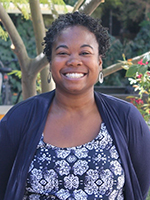
Congratulations to May Scholar of the Month Erica Reid of the University of Nevada, Las Vegas (UNLV)!
Originally from upstate New York, Reid earned her B.A. in English from the University at Albany and a M.S. in secondary education from the College of Saint Rose. She began working for UNLV in 2016 as an instructional designer for the Plus Center, creating modules for the hospitality industry training programs. Before joining the UNLV staff, she served as a secondary English and language arts teacher, licensed to teach grades 6-12.
15 May2018
By Kevin Graziano, Teresa Foulger, Denise Schmidt-Crawford and David Slykhuis
The views expressed in this post do not necessarily reflect the views of AACTE.
The Teacher Educator Technology Competencies (TETCs) have been finalized, thanks to feedback from many of you, and we are excited to invite you to put them to use–and to tell us about them!
The Need for Technology Competencies for Teacher Educators
Last year, we reported to you on our progress developing the TETCs, which aim to address the “digital use gap” among teacher educators and their ability to prepare PK-12 teachers to teach with technology.
03 May2018
By Ena Shelley
I have attended the AACTE State Leaders Institute (SLI) for 6 years and have found it to be one of my best professional development experiences. I hope other state chapter leaders will join me June 3-4 at this year’s SLI, the first of three signature events that make up AACTE’s Washington Week.
Over the course of 2 days at SLI, we’ll have rich opportunities to learn from each other and to discuss legislative issues and advocacy strategies, ways to support the growth and vitality of state chapters, and effective measures to increase our impact on state policy.
30 Apr2018
By Beth Giles-Klinkner
Experienced advocates share their experiences during the 2017 AACTE Day on the Hill.
The buses pull around the corner. Capitol Hill is buzzing with activity. This is your first time advocating. Butterflies begin to fly and then you remember: You are well prepared for this thanks to AACTE!
You’ll feel comfortable and confident as you head into Day on the Hill (June 6) because of AACTE’s extensive orientation the day before. During this “prep day” (June 5), you will be introduced to folks who are seasoned veterans at this type of work. They remember what it was like to be in your shoes and to be taking their first journey into advocacy.
24 Apr2018
By Trish Parrish

AACTE’s Day on the Hill is always an exciting event for me. I love the energy of the group at orientation and the feeling of making a difference when I visit my elected officials and their staff during Washington Week. But anticipating these visits can also provoke some anxiety, which is why AACTE offers a full day of preparation before our Capitol Hill visits.
The orientation day has always prepared us well, but this year’s promises to be even better. The enhanced agenda offers a choice of two tracks with breakout sessions tailored to increase readiness based on your experience and comfort level with advocacy.
20 Apr2018
By Larry Daniel
James McManus (undergraduate social studies education major), Jennifer Bucciarelli (MAT math education major), and Associate Professor Stephenie Hewett represent The Citadel in their visit with Congressman Joe Wilson (R-SC) at the 2016 AACTE Day on the Hill.
I have been attending AACTE’s Day on the Hill (DOTH) for the past 18 years. It is a highlight event of the year, as it allows opportunity to assess our priorities for advocacy while simultaneously putting advocacy into action. Over time, I have found that some of the best advocacy team members are our education students. I have had the privilege of making DOTH congressional visits accompanied by numerous students over the last 8 years – including both undergraduate and graduate students – and, in every case, the students have added value to the conversations well beyond what might have been obtained by faculty and deans alone.
When planning our Hill visits, we ask students to help us deliver important messages about pending legislation or federal education budgets and policies to our congressional members, and they are very effective in doing so. More importantly, we ask our students to tell their own story: Why did they decide to become an educator? How will new policy changes impact them as practicing teachers and school leaders? What can the federal government do to make a career in education more important to other students at their institution? When students visit and present answers to these and other questions, congressional members and staffers take notice.
09 Apr2018
By Christina Tschida, Ann Sebald and Kristen Cuthrell
The authors are leaders of the AACTE Coteaching in Clinical Practice Topical Action Group (TAG). For information about how to join or start a TAG, visit aacte.org.

On April 25, AACTE members are invited to join a virtual meeting of the Coteaching in Clinical Practice TAG, in which we plan to discuss collaborative grant-writing projects. This is a great opportunity to see what the TAG is all about and see if you’d like to join us!
The meeting will be held via Zoom on Wednesday, April 25, 11:00 a.m. – 12:00 p.m. EDT. You can enter the meeting any time after 10:45 a.m. EDT through the following channels:








